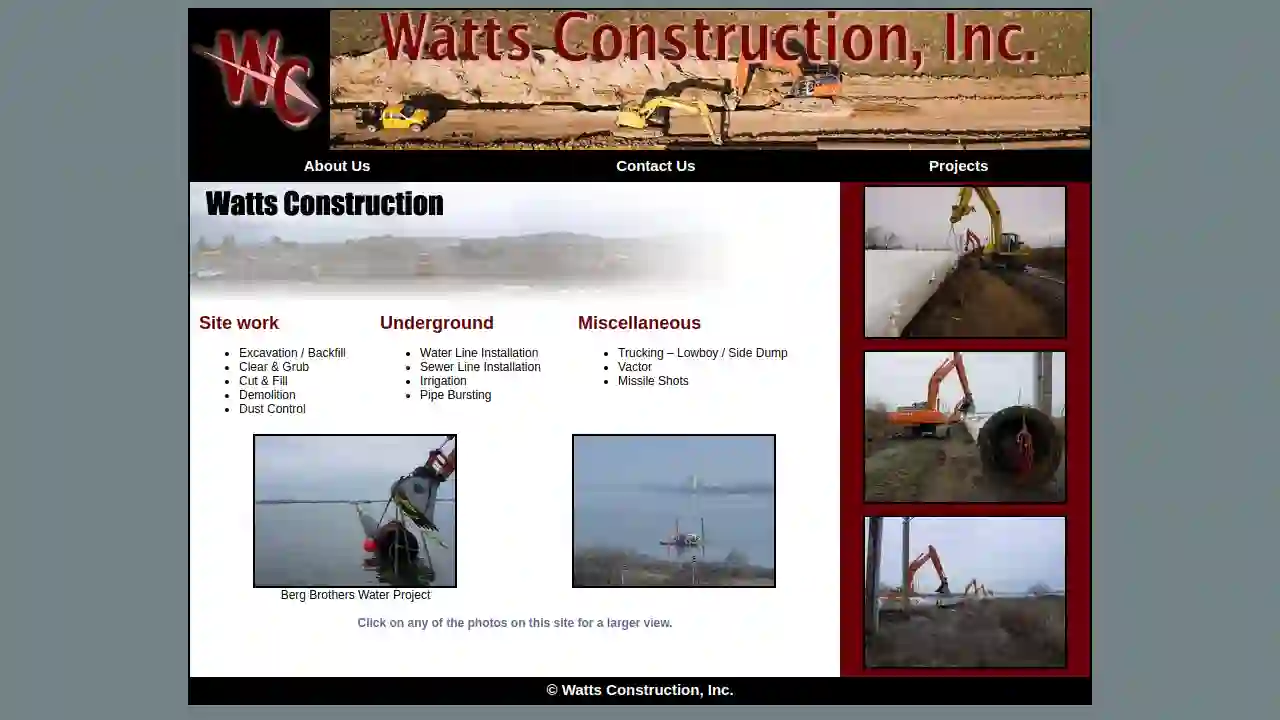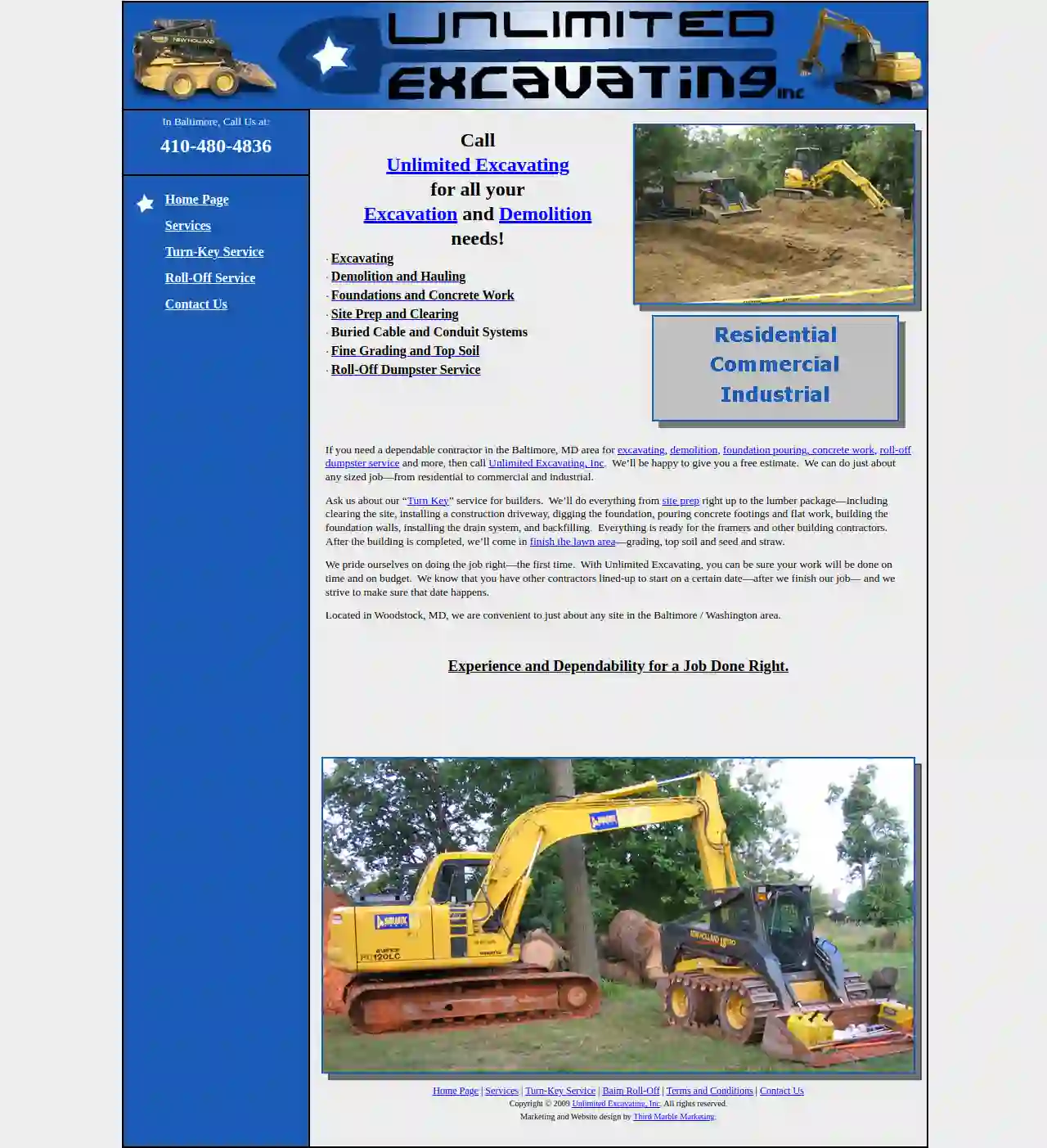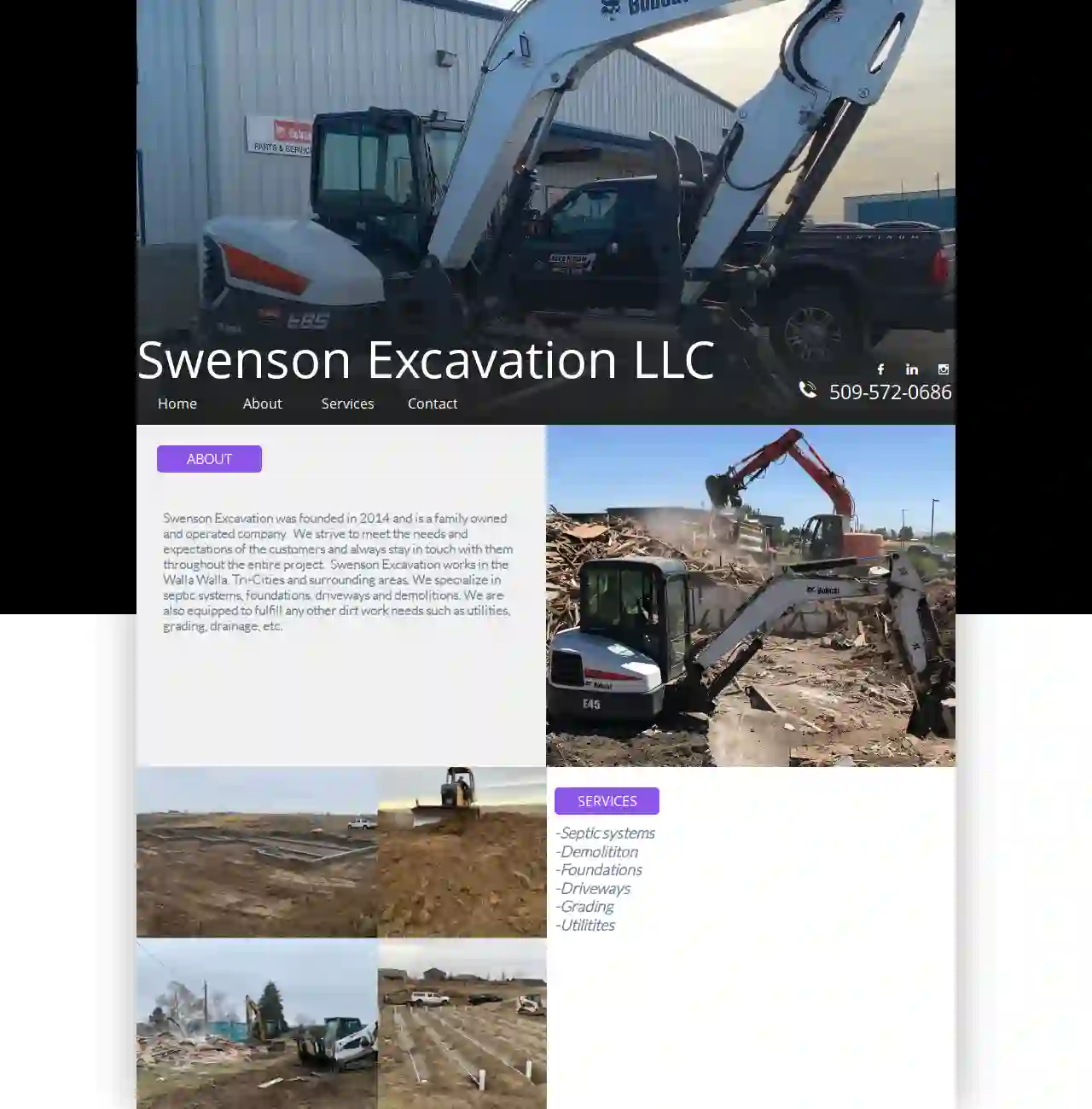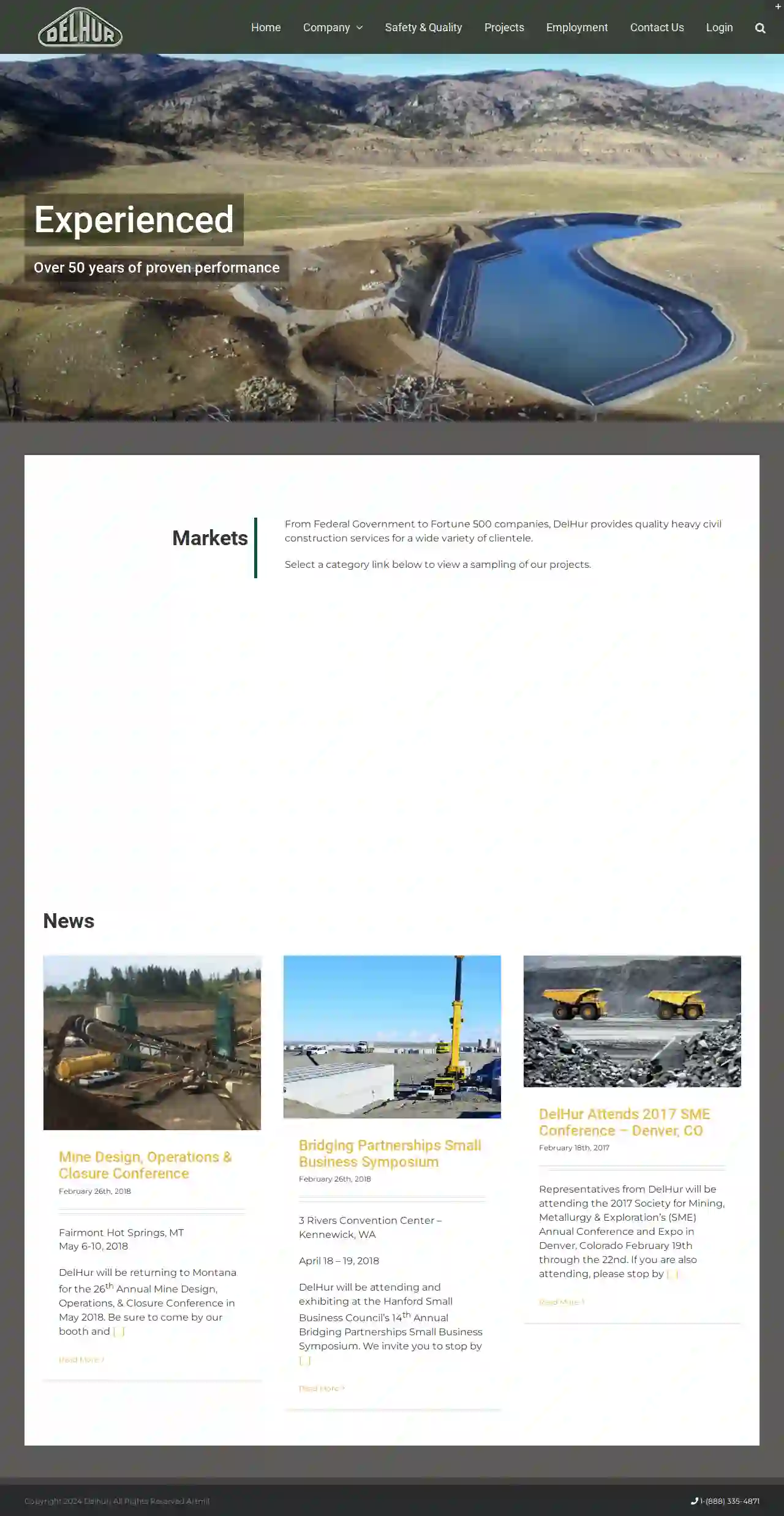Demolition Contractors Edgewood
Find the best Demolition Contractor in Edgewood
Receive multiple Demolition Contractors quotes for your project today! Compare profiles, reviews, accreditations, portfolio, etc... and choose the best deal.

Roto Rooter Service - Walla Walla
4.617 reviewsColumbia, USTHE EXPERIENCED, TRUSTED PLUMBERS. The Experienced and Trusted Plumbers Kennewick, Richland, Pasco and Walla Walla, WA Roto-Rooter plumbers in Tri-Cities and Walla Walla provide full-service plumbing maintenance and repairs, clogged drain cleaning, excavation for water and sewer lines and toilet repairs 24 hours a day. We stand by our estimates and guarantee our work. If you’re in need of fast, dependable residential or commercial plumbing services, call the trusted plumbers at Roto-Rooter. Kennewick, Richland, Pasco and Walla Walla Plumbing and Drain Solutions Homeowners everywhere have relied on Roto-Rooter since 1935 for honest, professional advice on all types of plumbing and drain cleaning services. ✓ Emergency Service ✓ Available 24 Hours ✓ Trusted and Recommended Since 1935 ✓ Licensed and Insured ✓ Full-Service Plumbing and Drain Cleaning ✓ No Hassle Guarantees Contact us to schedule service or request a FREE estimate.
- Services
- Why Us?
- Testimonials
- Gallery
Get Quote
Watts Construction Inc
3.513 reviews4828 Southridge Boulevard, Kennewick, 99336, USAbout Watts Construction Watts Construction was established in 1984 and incorporated in 1989 under the leadership of Loren Watts. Watts adheres to a high standard of ethics with honesty, integrity and professionalism when serving our customers and community by achieving excellence in all aspects of our work. Quality and safety is number one to us. We are confident we can respond to your contracting needs. Our Office Our trackhoes at our facility. Agri North Pipeline
- Services
- Why Us?
- Gallery
Get Quote
Unlimited Excavating
10203 Davis Ave., Woodstock, 21163, USUnlimited Excavating: Your Trusted Partner for Excavation and Demolition in Baltimore Unlimited Excavating, Inc. is your go-to contractor for all your excavation and demolition needs in the Baltimore, MD area. We offer a wide range of services, from residential to commercial and industrial projects. Our team is dedicated to providing high-quality work, on time and on budget. We understand the importance of meeting deadlines and ensuring your project runs smoothly. We take pride in our commitment to excellence and customer satisfaction. We use only the best equipment and materials to ensure your project is completed to the highest standards. Our experienced team is dedicated to providing you with the best possible service. We offer a comprehensive range of services, including: Excavation Demolition and Hauling Foundations and Concrete Work Site Prep and Clearing Buried Cable and Conduit Systems Fine Grading and Top Soil Roll-Off Dumpster Service We also offer a "Turn Key" service for builders, which includes everything from site prep to the lumber package. We'll handle all the details, so you can focus on what you do best. Contact us today for a free estimate. We'll be happy to discuss your project and answer any questions you may have.
- Services
- Why Us?
- Gallery
Get Quote
Ellison Earthworks LLC
54 reviews1212 Columbia Park Trail Suite 104, Richland, 99352, USEllison Earthworks: Your Trusted Partner for Earthwork Solutions in the Tri-Cities Ellison Earthworks is a reputable general contractor serving the Tri-Cities area of Washington. We are committed to providing high-quality earthwork services for both residential and commercial projects. Our team of experienced professionals is dedicated to delivering exceptional results, exceeding client expectations, and building lasting relationships. We are fully bonded and insured, and our commitment to safety and quality is reflected in our work. We are proud to hold a WA Contractors License # ELLISEL793CQ, demonstrating our adherence to industry standards and regulations. At Ellison Earthworks, we believe in transparency and open communication. We work closely with our clients throughout every stage of the project, ensuring their vision is realized. Our expertise and dedication to customer satisfaction make us the ideal choice for your next earthwork project.
- Services
- Why Us?
- Gallery
Get Quote
Quality Backhoe Services, Inc
554 reviews123 Main Street, Anytown, 12345, USQuality Backhoe Services: Your Trusted Partner for Excavation and Site Preparation Quality Backhoe Services is a family-owned and operated business with over 20 years of experience in the excavation and site preparation industry. We are committed to providing our clients with the highest quality services at competitive prices. Our team of experienced operators and skilled laborers are dedicated to delivering projects on time and within budget. We take pride in our work and strive to exceed our clients' expectations. We offer a wide range of services, including: Site clearing and preparation Excavation for foundations, pools, and other structures Grading and leveling Demolition and removal Utility installation And more! We are fully insured and bonded, and we are committed to safety on every job site. We use only the latest equipment and technology to ensure that our work is done to the highest standards. We are also environmentally conscious and take steps to minimize our impact on the environment. If you are looking for a reliable and experienced excavation contractor, look no further than Quality Backhoe Services. We are dedicated to providing our clients with the best possible service and results. Contact us today for a free estimate.
- Services
- Why Us?
- Testimonials
Get Quote
D&D Tri-Rivers Excavating, Inc.
4.738 reviews253 Jackrabbit Lane, Kennewick, 99338, USD&D Tri-Rivers Excavating, Inc. We Value Integrity, Transparency, and Honesty, Follow Through With What We Promise, and Stand Behind The Work We Do. Experienced Team Since 1979, we've been providing quality craftsmanship and a full-service approach from start to finish. Quality Craftsmanship Our team is dedicated to providing the highest quality workmanship and customer service.
- Services
- Why Us?
- Our Team
- Testimonials
- Gallery
Get Quote
Swenson Excavation
52 reviews1000 10th Ave NW, Austin, 55972, USAbout Swenson Excavation Swenson Excavation is a family-owned and operated business with over 20 years of experience in the excavation industry. We are committed to providing our clients with high-quality services at competitive prices. We specialize in a wide range of excavation services, including: Site preparation Grading Demolition Utility installation And more We are a fully licensed and insured company, and we are dedicated to providing our clients with the highest level of customer service. We are committed to safety and environmental responsibility, and we always strive to exceed our clients' expectations. Contact us today for a free estimate.
- Services
- Why Us?
- Testimonials
Get Quote
Dirt Devil Enterprises
546 reviewsCatonsville, MD, USAbout Us & Why We are The Best For the Job Dirt Devil Enterprises is dedicated to sustaining a close relationship with you on every project. We are a family-owned and operated business with over 15 years of experience in the construction industry. We are committed to providing our clients with the highest quality workmanship and customer service. We are fully licensed and insured, and we are proud to be a member of the Better Business Bureau. Our Mission Our mission is to provide our clients with the highest quality construction services at a fair price. We are committed to exceeding our clients' expectations and building lasting relationships. We believe in open communication and transparency, and we are always available to answer your questions and address your concerns. Our Values We are committed to the following values: Quality Integrity Customer Service Safety Teamwork
- Services
- Why Us?
- Gallery
Get Quote
Delhur Industries Inc
3.915 reviewsColumbia, USReliable Depend on DelHur to see your project through to completion. Innovative Allow DelHur to provide inventive solutions for your project. Experienced Over 50 years of proven performance.
- Services
- Why Us?
- Gallery
Get Quote
Legacy Lawn and Landscape LLC
4.36 reviews4315 Messara Lane, Pasco, WA 99301, 99301, USAbout Legacy Lawn & Landscape Legacy Lawn & Landscape was founded in 1999 by Nathan Pratt. Since then, we've achieved many milestones, gaining the knowledge and experience that has earned us a reputation as a top-quality landscaping firm. Our commitment is to build lasting relationships with our customers by exceeding their expectations and gaining their trust through exceptional performance in everything we do. We've proudly served the Tri-Cities area, including Richland, Pasco, and Kennewick. We now also offer landscaping and fencing services to Walla Walla, Yakima, and Spokane. Visit our Services page to discover how Legacy Lawn and Landscape can enhance your property!
- Services
- Why Us?
- Testimonials
- Gallery
Get Quote
Over 22,076+ Excavation Companies onboarded
Our excavation companies operate in Edgewood & surrounding areas!
ExcavationHQ has curated and vetted the Best Excavation Contractors arround Edgewood. Find a reliable pro today.
Frequently Asked Questions About Demolition Contractors
- Feasibility Studies: Assessing the viability and challenges of a demolition project.
- Demolition Planning: Developing demolition plans, including method selection, sequencing, and safety procedures.
- Permitting Assistance: Navigating the demolition permitting process and ensuring compliance with regulations.
- Hazardous Material Surveys: Identifying and managing hazardous materials, such as asbestos and lead paint.
- Cost Estimating: Providing accurate cost estimates for demolition services.
- Project Management: Overseeing the demolition process and ensuring it proceeds as planned.
- Implosion: Using explosives to collapse a structure inwards rapidly. Suitable for large buildings in open areas.
- Wrecking Ball: Swinging a large steel ball to impact and break down the structure. Effective for bringing down walls and other solid elements.
- High-Reach Demolition: Utilizing specialized excavators with extended arms and demolition attachments for dismantling tall structures piece by piece.
- Selective Demolition: Removing specific parts of a building while preserving other sections. Often used in renovation projects.
- Deconstruction: Carefully dismantling a building to salvage reusable materials, reducing waste and environmental impact.
What is the role of a demolition consultant?
What is asbestos abatement?
What are the different types of demolition?
How do I find demolition contractors near me?
What is the role of a demolition consultant?
- Feasibility Studies: Assessing the viability and challenges of a demolition project.
- Demolition Planning: Developing demolition plans, including method selection, sequencing, and safety procedures.
- Permitting Assistance: Navigating the demolition permitting process and ensuring compliance with regulations.
- Hazardous Material Surveys: Identifying and managing hazardous materials, such as asbestos and lead paint.
- Cost Estimating: Providing accurate cost estimates for demolition services.
- Project Management: Overseeing the demolition process and ensuring it proceeds as planned.
What is asbestos abatement?
What are the different types of demolition?
- Implosion: Using explosives to collapse a structure inwards rapidly. Suitable for large buildings in open areas.
- Wrecking Ball: Swinging a large steel ball to impact and break down the structure. Effective for bringing down walls and other solid elements.
- High-Reach Demolition: Utilizing specialized excavators with extended arms and demolition attachments for dismantling tall structures piece by piece.
- Selective Demolition: Removing specific parts of a building while preserving other sections. Often used in renovation projects.
- Deconstruction: Carefully dismantling a building to salvage reusable materials, reducing waste and environmental impact.